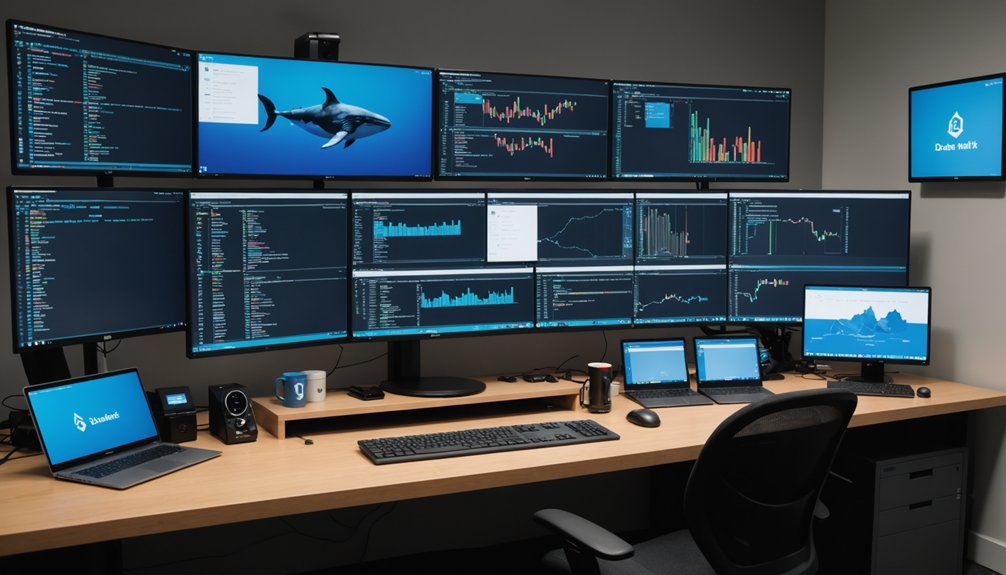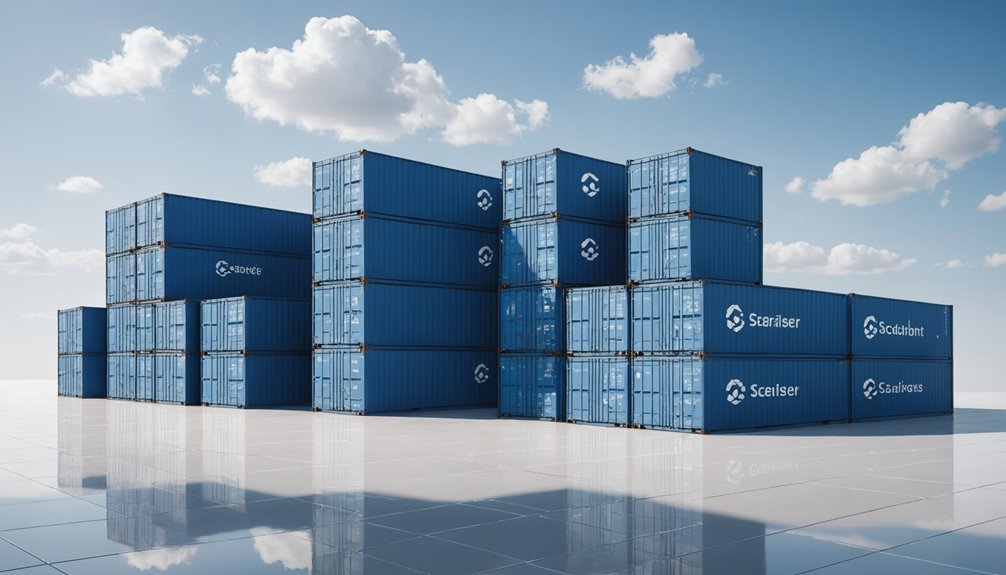Docker revolutionizes software development through environment consistency, microservices architecture, and lightning-fast CI/CD pipelines. It eliminates the infamous "works on my machine" problem while slashing deployment times by up to 80%. Teams enjoy dependency-free environments, simplified onboarding, and seamless multi-cloud flexibility. Kubernetes integration automates large-scale deployments, and AI optimization handles routine tasks. Yeah, containers change everything—and we're just scratching the surface of what's possible.

While developers once struggled with the infamous "it works on my machine" problem, Docker has changed the game completely. No more excuses, no more environment inconsistencies. Docker containers package everything an application needs to run, making deployment consistent across all environments. Period.
This standardization means new team members can get up and running in minutes instead of days—a godsend for growing development teams. Similar to model training in machine learning, proper setup and configuration are crucial for success.
Docker's true power shines in microservices architecture. Gone are the days of monolithic applications that break completely when one tiny component fails. With Docker, developers break applications into independent services, each running in its own container. One service crashes? The others keep humming along. Simple as that.
CI/CD pipelines move faster with Docker. Way faster. Containers spin up in seconds, and the caching system means builds don't waste time recreating what already exists. Some teams report deployment times cut by 80%. That's not just efficiency—it's revolutionary.
Docker doesn't just accelerate CI/CD pipelines—it revolutionizes them. 80% faster deployments? That's not an upgrade; that's a game-changer.
The dependency hell that plagued developers for decades? Docker killed it. Each container includes exactly what it needs, nothing more. No conflicts, no version mismatches. Just clean, isolated environments that work every single time.
Scaling applications used to be a nightmare. Not anymore. Docker makes it trivial to scale individual services without touching others. Need more authentication servers but not more database capacity? No problem. Two clicks and you're done.
AI is making Docker even smarter. Machine learning algorithms analyze previous builds and optimize future ones. They predict resource needs and automate routine tasks. Docker's built-in security ensures containers run independently unless explicitly configured to interact. The containers themselves haven't changed, but how we use them has. Similar to how computer vision enhances modern robotics, AI optimization makes Docker containers more autonomous and efficient.
Integration with Kubernetes takes orchestration to another level. Managing hundreds of containers manually would be insane. Kubernetes handles it automatically.
Docker's flexibility facilitates a multi-cloud strategy that prevents vendor lock-in and allows businesses to migrate between cloud providers with minimal friction.
The bottom line? Docker isn't just another tool. It's transformed how software gets built, tested, and deployed. No wonder it's become the industry standard. Deal with it.
Frequently Asked Questions
How Does Docker Compare to Virtual Machines for Deployment?
Docker crushes virtual machines in deployment speed. No contest.
Containers start in seconds, VMs take minutes. Docker's lightweight nature means less resource overhead and better scalability.
VMs offer stronger isolation though—complete OS separation versus Docker's namespace tricks.
For microservices? Docker wins.
Legacy apps with weird OS dependencies? VMs have the edge.
Each has its place. Deployment strategy depends on what you're running, not what's trendy.
What Security Concerns Should I Consider When Implementing Docker?
Docker security concerns are no joke. Unrestricted container traffic creates backdoors. Vulnerable images from questionable publishers lurk in Docker Hub.
The shared kernel? One exploit affects everything. Container breakouts happen. Insufficient access control is a disaster waiting to happen.
Solutions exist: implement role-based access, use trusted registries, encrypt communications, update regularly.
Oh, and don't forget resource quotas. Security's a marathon, not a sprint.
Can Docker Containers Run on Any Operating System?
Docker containers don't run natively on all operating systems. They're a Linux thing at heart.
On Windows and macOS? Not so seamless. Docker Desktop swoops in with virtualization to make it work, using Hyper-V or WSL for Windows and HyperKit for macOS.
Fundamentally, these systems need a lightweight Linux VM as middleman.
Linux distros? No problem—containers run directly there. It's all about that kernel compatibility.
How Does Docker Affect Application Performance?
Docker generally improves application performance through consistent environments and resource isolation.
Containers run with less overhead than VMs, meaning faster startup times. Resource allocation is precise—no more, no less. Docker's layered file system reduces duplication, saving disk space. Containers can scale up or down quickly based on demand.
That said, improperly configured containers can actually harm performance. Network overhead exists but is minimal in most cases.
What's the Learning Curve for Teams New to Containerization?
The learning curve for containerization is steep. No sugarcoating it.
Teams face multiple hurdles: mastering Docker syntax, understanding Kubernetes orchestration, and rethinking application architecture. Most struggle initially with networking concepts and security implications.
Training takes time—weeks to grasp basics, months for proficiency. Success depends on organizational support and dedicated learning resources. Some concepts click immediately; others require painful trial and error.
Worth it? Usually. But not without some frustration along the way.




